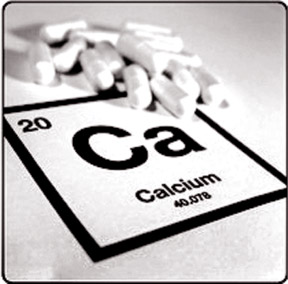|
Health Watch
Lung cancer tests advised for some heavy smokers
New recommendations from chest and cancer doctors call for lung
cancer screening in older adults with a long history of smoking a pack a
day or more but also highlight the possible harms of screening,
including a high risk of false positive tests.
The guidelines are based on a review of past studies which compared
long-term health in smokers who underwent low-dose CT screening for lung
cancer and those who got another cancer test or “usual care” instead.
|

Heavy smokers are advised to ungergo lung cancer tests. |
Most of the evidence in favor of screening comes from a single large
study known as the National Lung Screening Trial. That study found a
20-percent lower risk of lung cancer death among more than 26,000 people
screened with low-dose CT annually for three years, compared to those
who were tested with so-called chest radiographs instead.
But the combined prior research also suggested that in any round of
CT screening, about one in five people will have positive results that
require further testing, sometimes with invasive procedures although
only one percent will actually have lung cancer.
“The trade-offs there are sizeable, even in the high-risk people,”
said Dr. Peter Bach, the lead author of the new review paper from
Memorial Sloan-Kettering Cancer Center in New York.
“As you go down the risk range younger people, people who have smoked
less because their chance of ever developing lung cancer is lower, the
chance that they will benefit is also lower, and in some cases
substantially lower,” he told Reuters Health.
According to the new recommendations from the American College of
Chest Physicians and the American Society of Clinical Oncology, annual
screening should be offered to current and former smokers, age 55 to 74,
who have smoked at least a pack of cigarettes a day for 30 years.
The screening recommendations don't apply to former smokers who quit
more than 15 years ago, the researchers reported Sunday in the Journal
of the American Medical Association.
Possible harms of lung cancer screening, they said, include the
radiation associated with CT scans -- which over long periods of time
may increase the risk of cancer itself as well as the unnecessary extra
procedures and anxiety that come with a positive test that turns out to
be a benign nodule. Dr. James Mulshine, a lung cancer researcher at Rush
Medical College in Chicago, said the new study may overplay the risks of
screening compared to the benefits of catching potentially-deadly lung
cancers early.
Currently, most lung cancers aren't caught until stage III or IV, and
less than one in five people with a new diagnosis survives five years.
“Lung cancer screening is a big deal,” Mulshine, also the vice
president for research at Rush, told Reuters Health.
“Some people potentially will be harmed, and there's even the chance
some people will die (because of complications from screening). But
that's also the case of flu shots... and driving to the doctor's
office.”
He also suggested CT scans and other procedures are becoming safer
over time, lowering the chance of screening-related harm.
Mulshine, who wasn't involved in the new study, said it's “very
reasonable” for current or former heavy smokers to have a discussion
with their doctors about the benefits and risks of lung cancer
screening.
And any screening that is done, he said, should be combined with
advice on how to quit smoking and referrals to smoking cessation
programs for people who haven't yet kicked the habit.
According to the Centers for Disease Control and Prevention, close to
160,000 people in the United States died from lung cancer in 2008, the
most recent year with available data. Nationally, more men and women die
from lung cancer than any other type of cancer.
Screening for lung cancer nodules runs about $300.
One of the original studies suggesting CT scans could prevent deaths
from lung cancer was later criticized over ethical issues with how the
research was conducted.
Since then, the National Lung Screening Trial has been the largest
gold-standard study to evaluate low-dose CT screening and the only one
to convincingly show a benefit, the researchers reported. Two smaller
studies analyzed by Bach and his colleagues included fewer than 5,000
participants each and didn't find any difference in deaths with
screening.
Bach said most people who get screened for lung cancer won't benefit
from it because they don't have cancer and also won't suffer any side
effects.
People at high risk of cancer, he said, should “weigh the benefits
and risks” of screening based both on their own chance of cancer and
their values.
“This is not a no-brainer in any sense,” Bach said.
“We think on balance it's worth it enough that it would be a
reasonable decision for an individual (at high risk) to be screened, but
I think different people value the risks and benefits differently.”
-Reuters
Calcium pills pose ‘heart risk’
People who take calcium supplements could be increasing their risk of
having a heart attack, according to researchers in Germany.
Calcium is often taken by older people to strengthen bones and
prevent fractures.
|

Researchers urge caution on calcium pills |
But the study, published in the journal Heart, said the supplements
"should be taken with caution".
Experts say promoting a balanced diet including calcium would be a
better strategy.
The researchers at the German Cancer Research Centre, in Heidelberg,
followed 23,980 people for more than a decade.
They compared the number of heart attacks in people who were taking
calcium supplements with those who did not.
We need to determine whether the potential risks of the supplements
outweigh the benefits calcium can give sufferers of conditions such as
osteoporosis"
There were 851 heart attacks among the 15,959 people who did not take
any supplements at all. However, people taking calcium supplements were
86% more likely to have had a heart attack during the study.
The researchers said that heart attacks "might be substantially
increased by taking calcium supplements" and that they "should be taken
with caution".
Dr Carrie Ruxton, from The Health Supplements Information Service
which is funded supplement manufacturers, said: "Osteoporosis is a real
issue for women and it is irresponsible for scientists to advise that
women cut out calcium supplements on the basis of one flawed survey,
particularly when the link between calcium, vitamin D and bone health is
endorsed by the European Food Safety Authority."
The British Heart Foundation (BHF) said patients prescribed the
supplements should keep taking their medication, but should also speak
to their doctor if they were concerned.
'Not safe'
Natasha Stewart, a senior cardiac nurse with the BHF, said: "This
research indicates that there may be an increased risk of having a heart
attack for people who take calcium supplements.
"However, this does not mean that these supplements cause heart
attacks.
"Further research is needed to shed light on the relationship between
calcium supplements and heart health. We need to determine whether the
potential risks of the supplements outweigh the benefits calcium can
give sufferers of conditions such as osteoporosis."
Ian Reid and Mark Bolland, researchers at the University of Auckland
in New Zealand, said: "The evidence is also becoming steadily stronger
that it is not safe, nor is it particularly effective.
"Therefore, the administration of this micro nutrient should not be
encouraged; rather people should be advised to obtain their calcium
intake from an appropriately balanced diet.
"We should return to seeing calcium as an important component of a
balanced diet and not as a low cost panacea to the universal problem of
postmenopausal bone loss." A spokeswoman for the UK's Department of
Health said it would consider the study carefully once the complete
article had been published.
"The majority of people do not need to take a calcium supplement,"
she said.
"A healthy balanced diet will provide all the nutrients, including
calcium, that they need. Good sources of calcium include milk and dairy
foods, fortified dairy food alternatives, e.g. soya drink, and green
leafy vegetables."
-BBC
Breastfeeding tied to stronger lungs, less asthma
Kids who were breastfed as babies may have better lung function, and
a lower risk of asthma, than those who were formula-fed, two new reports
suggest.
Researchers said that past studies have found conflicting results
when it comes to the effects of breastfeeding on kids’ lungs, with some
research suggesting that moms with asthma who breastfeed may be putting
their kids at risk as well.
|

Kids who were breastfed as babies have better lung function, and
a lower risk of asthma than those who were formula-fed. |
But the new research hints that's not the case, and that babies with
asthmatic moms may get just as much benefit from breastfeeding, if not
more, compared to those with asthma-free mothers.
“I think the evidence is that breastfeeding increases lung volume,
independent of if the mother is asthmatic or not,” said Dr. Wilfried
Karmaus, who studies asthma at the University of South Carolina in
Columbia and wasn't involved in the new work.
“If the lung volume is increased, then you are less susceptible to
get asthma,” he told Reuters Health. “It's important even to tell
asthmatic mothers to breastfeed their children.”
In one study, published Friday in the American Journal of Respiratory
and Critical Care Medicine, about 1,500 UK kids were followed from their
birth in the mid-1990s.
Families responded to surveys related to breastfeeding as well as
secondhand smoke exposures and other known asthma risks starting when
kids were babies. At age eight to 14, the kids came into the lab for a
range of lung function and allergy tests.
Dr. Claudia Kuehni from the University of Bern, Switzerland and her
colleagues found that the longer kids were breastfed, the better they
performed on one test, measuring the speed of air coming out of the
lungs.
On two other tests, which also assess how much air the lungs can
hold, breastfeeding for four months or longer was linked to better
scores only in kids whose moms had asthma.
The researchers reported that the better lung function did not seem
to be related to a history of fewer childhood respiratory infections a
known benefit of breastfeeding.
Kuehni's team said that the lung boost attributed to breastfeeding
might not make a difference for a healthy kid, but on a wider scale, it
could mean that breastfeeding would protect more kids from breathing
problems.
One limitation of their study, the researchers noted, is that only
about one-third of the kids they followed from birth and invited to do
lung tests more than 4,000 in total actually participated, which could
skew the results if certain types of kids were more likely to come in
than others.
In the other study, from New Zealand, a second group of researchers
also followed babies from birth, but instead of testing lung function
they asked parents of six-year-olds if their kids had ever been
diagnosed with asthma or had used an inhaler or wheezed in the last
year.
With data on more than 1,000 kids, including about 200 with asthma at
their last visit, a team led by Karen Silvers found that each month of
exclusive breastfeeding (without any formula mixed in) was tied to a
nine-percent drop in asthma risk.
Silvers, from the University of Otago in Christchurch, and her
colleagues reported their findings Sunday in the Journal of Pediatrics.
Karmaus said that researchers have questioned whether breast milk might
carry immune cells related to allergies and asthma from mother to baby,
putting infants of asthmatic moms at risk of breathing problems and that
some concerned mothers with asthma may avoid breastfeeding as a result.
But the new findings suggest they shouldn't worry, he said.
He hypothesized that babies’ suckling during breastfeeding may
strengthen their lungs and help protect them against asthma later but
that hasn't been proven.
The World Health Organization recommends breastfeeding exclusively
for the first six months of life, continued for two years or longer.
Dr. Theresa Guilbert, a pediatric pulmonologist from the University
of Wisconsin School of Medicine and Public Health in Madison, said that
despite the new findings, it's still “controversial” whether or not
asthmatic moms pass on any risk to their babies by breastfeeding.
None of the studies that have been done can prove cause-and-effect
one way or the other, she said, and conflicting results might be due to
different samples of moms, from areas with different diets and
environmental exposures.
“There's a lot of things that breastfeeding is very, very good for,”
Guilbert, who wasn't involved in the new research, told Reuters Health.
“I think the jury's still out on the risk of breastfeeding from mothers
that are asthmatic.”
But, she concluded, “I don't think any of that (evidence) is now
strong enough to tell moms they should stop breastfeeding... because of
all the other important benefits that breastfeeding conveys to the
child.”
-www.healthnews.com
|



